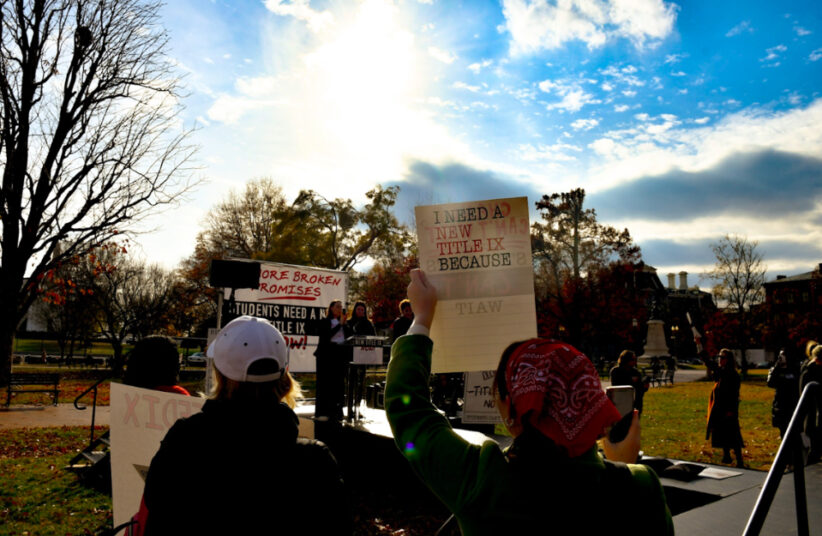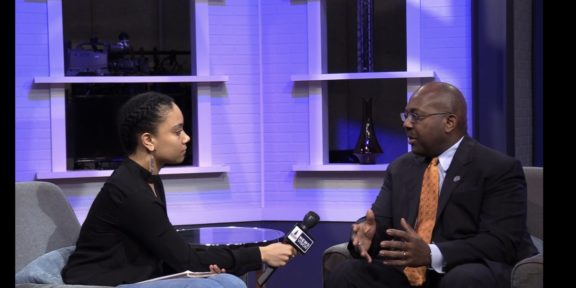By Sabreen Dawud
On Feb. 2, The Biden administration sent draft regulations to the Office of Management and Budget (OMB) to reverse changes made to Title IX under the Trump administration in 2020.
While the Supreme Court defined sexual harassment as “so severe and pervasive,” the regulations recommended under the Biden administration would broaden the definition of sexual harassment to include unwanted actions.
The new definition would also include sexual harassment that occurs on the basis of one’s sexual orientation, gender identity, and pregnancy status.
“I think policies like Title IX that demand that universities and institutions, one, remediate harm that is occurring in an environment, especially an educational environment, are essential to protecting environments where people are supposed to grow and learn,” Shakira Jarvis, Director of the Office of Interpersonal Violence Prevention at Howard University said.
The Biden administration also instructs colleges to take action on sexual harassment cases that have occurred off-campus during academic programs or study abroad. This differs from the regulations proposed in 2020, which only addressed on-campus misconduct.
Additionally, the recent proposal presents changes to the ways in which investigations and hearings are conducted.
The regulations recommended under Trump required cross-examination and in-person hearings. However, colleges are not required to exercise these practices under Biden’s redraft.
They can have remote hearings to avoid having the victim in the same space as the accused individual.
The new approach opens up reporting opportunities for those who have left the college as a result of sexual harassment. Students would also be allowed to report sexual harassment without filing an official report.
Suggestions concerning time frames would also be addressed with the proposal requiring that colleges finish investigations in a timely manner. Those working under Title IX must also frequently communicate with all students involved about the case status.
According to Jarvis, though the current policies limit what universities can investigate off campus, she still encourages students to report instances of sexual misconduct.
“Students can report instances of harm that happen off campus, and they should because even if the University can’t investigate it, they can still provide supportive measures,” she said.
She adds that even without investigation, students still have access to whether it be residential supportive measures, academic supportive measures, or connection to services.
Advocacy group leaders such as Emma Grasso Levine, the Senior Manager of Title IX Policy and Programs at Know Your IX, share their concerns surrounding how the regulations established in 2020 could impact a student’s ability to move forward with reporting an assault.
With the definition of sexual harassment being “so severe, pervasive, and objectively offensive” under Trump’s administration, Levine feels there may be limitations.
“They will go to report something, and their school will say actually the thing that you experienced doesn’t meet that really high definition and standard and then will get turned away because their school says we’re actually not legally obligated to address something that doesn’t meet this standard,” she said.
Students who have experienced misconduct, such as Chelsea Aboagye, a former student at New Jersey City University, expressed that it was difficult to discuss her experience with her friends, let alone an official administrator.
“If I did trust anybody, I definitely would’ve wanted it to be someone my age or around my age, which the first person I would look at is an RA,” she continued.
Aboagye also described how the regulations put forward under Trump’s administration may cause isolation due to the mental toll that sexual misconduct has on students.
“That would cause me to isolate myself more, which would cause me to stress out more. I think the whole thing about being in a school setting while going through all this stuff as well is we’re in school. School’s not easy. You know what I mean. So it’s like, not only did this terrible thing happen to me. I’m in school. I have a paper to do tonight,” Aboagye said.
With some Title IX advocates encouraging the changes issued under Biden’s administration, the wait continues as many anticipate whether the new regulations will go into effect.










